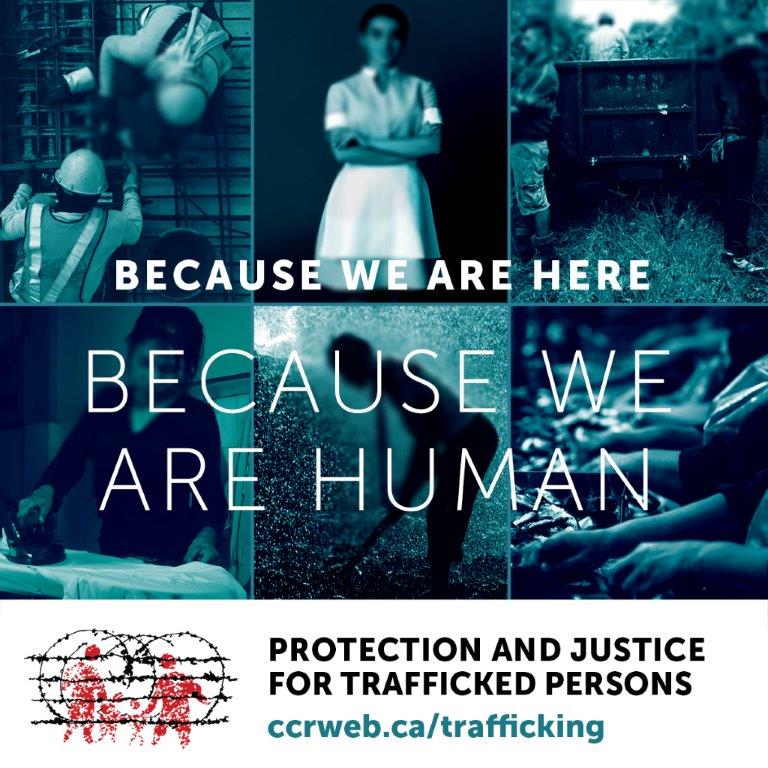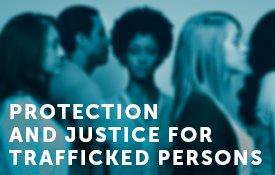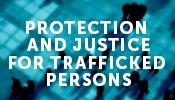
Monday, we welcomed the Shelley Gilbert, Coordinator of Social Work Services and the Chair of the Windsor Essex Anti-Human Trafficking Action Group (WEFIGHT).
Shelley Gilbert has worked at Legal Assistance of Windsor since 1993. She is currently the Coordinator of Social Work Services and the Chair of the Windsor Essex Anti-Human Trafficking Action Group (WEFIGHT).
Shelley conducts training and workshops for both NGOs and law enforcement to help identify and provide service to survivors across the country. She has presented models of collaboration, policy gaps and best practice approaches at national and provincial conferences. She was awarded the Inspirational Leader Award by the Ontario Association of Social Workers in 2014 and the Attorney General Victim Services Award of Distinction in 2016.
The Windsor Essex Anti-Human Trafficking Action Group (WEFIGHT) provides support and advocacy to survivors of domestic and international human trafficking. This includes forced labour/debt bondage, forced marriage, and women trafficked into the sex industry.

Some of the most significant barriers to trafficked people are not knowing what options are available to them and fear of deportation. WEFIGHT supports victims with counselling, housing support, rent supplements, and teaches them how to manage money and be a good tenant.
How do we minimize the risk of someone being trafficked? Shelley explained that the first step is to increase public awareness and training. The organization encourages survivors to share their stories so others can understand how to spot and help those in need. It's also a great way to help current victims identify with the story and develop the courage to seek help. Traffickers are good at understanding vulnerabilities and using them to lure a person by force, fraud or coercion.
The most common way to lure someone is using poverty as a means to manipulate someone with the promise of money or a better life. What is often misunderstood about human trafficking is that anyone can be at risk, it’s about the opportunity. However, those most at risk include: people experiencing homelessness,
youth who have/are experiencing trauma,
temporary foreign workers,
undocumented people,
and men or women working in the sex trade.
youth who have/are experiencing trauma,
temporary foreign workers,
undocumented people,
and men or women working in the sex trade.
We know that undocumented people are unlikely to reach out when it comes to seeking help when they’re in trouble or trafficked to law enforcement or NGOs. Traffickers prey on this vulnerability, and it makes undocumented people a target.
The exploitation does not start very often as forced labour and trafficking. It develops over time, with low employment standards, then seclusion where they can’t participate with a community, not allowed to date. It progresses to loss of identity and independence - not allowed to practice religion, only allowed to shop when a supervisor can take them. Finally, taking their passport or work authorization and having to pay their recruiter unexplained additional money.
Threats and force usually only happen when the victim starts questioning what is happening.
Three elements of human trafficking:
Recruitment
Poverty (most common)
Lack of options for self, the possibility of a new life
Need to escape abuse
Substance abuse.
Poverty (most common)
Lack of options for self, the possibility of a new life
Need to escape abuse
Substance abuse.
Coercion
Threats of violence
Lack of immigration status
Lack of trust of authorities
Isolation/loneliness
Threats of violence
Lack of immigration status
Lack of trust of authorities
Isolation/loneliness
Exploitation
Using them to make money
Using them to take the risk of the criminal charges
Using them for free/cheap labour
Using them to make money
Using them to take the risk of the criminal charges
Using them for free/cheap labour
Shelley explained that the best way to intervene before someone falls victim to human trafficking is to address poverty and trauma early.
Intervention early on will help mitigate their risk. This means that we need to develop innovative approaches, collaboration and funding to help kids. We often have children who are victims of trauma, find themselves out on the street, and no one is looking for them. These kids are very likely to end up being trafficked, but they are also very likely to stay with their abusers and not seek help.
As for international trafficking, we have to deal with it at a systemic level. Labour trafficking is putting people at risk and forcing them to be enslaved to their employers. As a society, we need to recognize the global issues contributing to what is happening here in Canada and with migrant workers.

